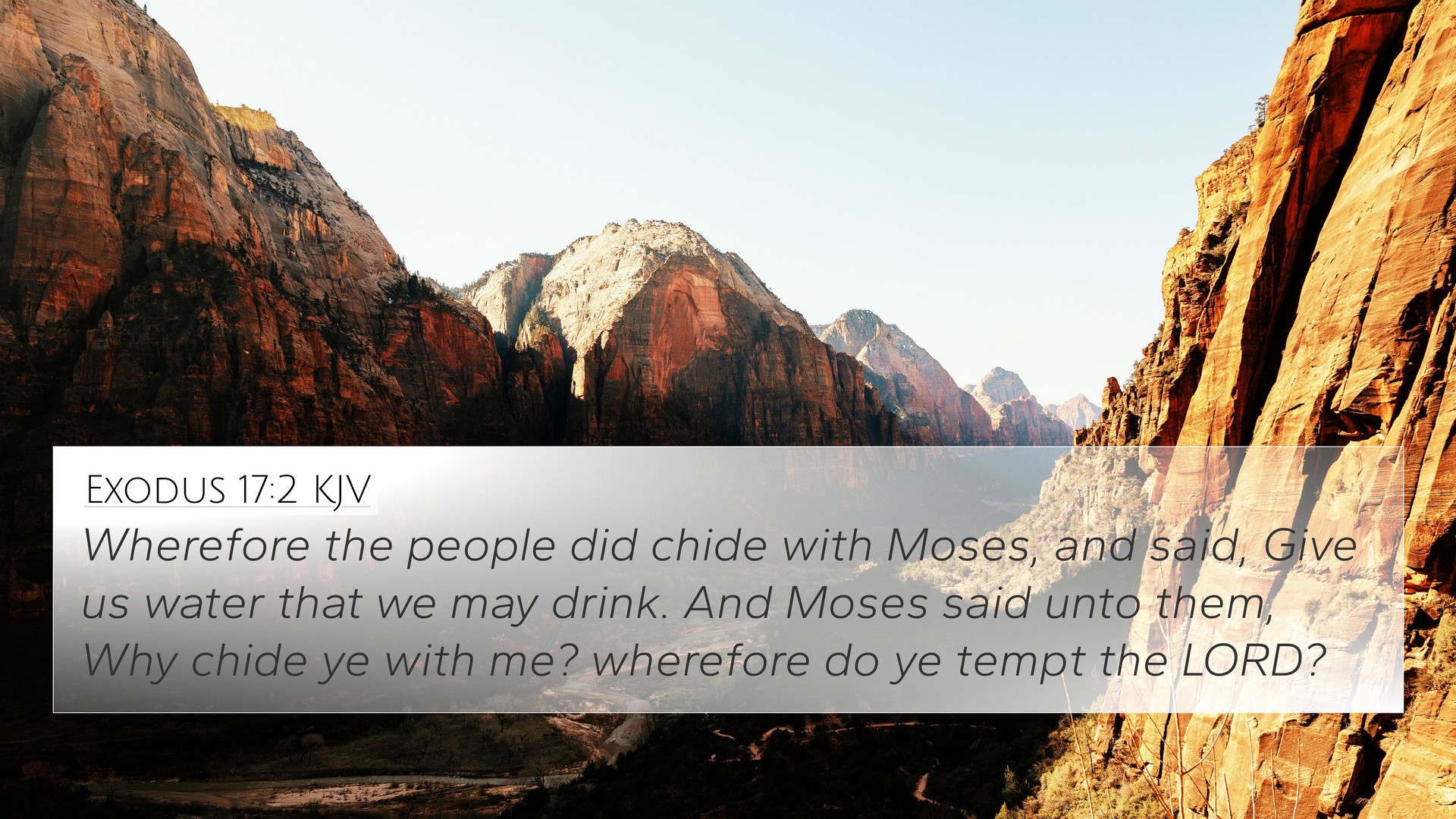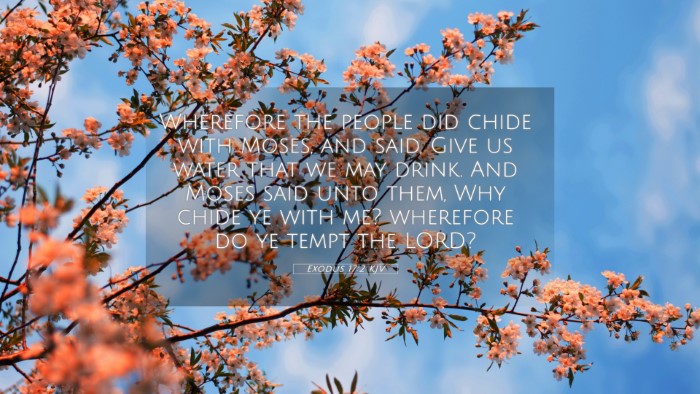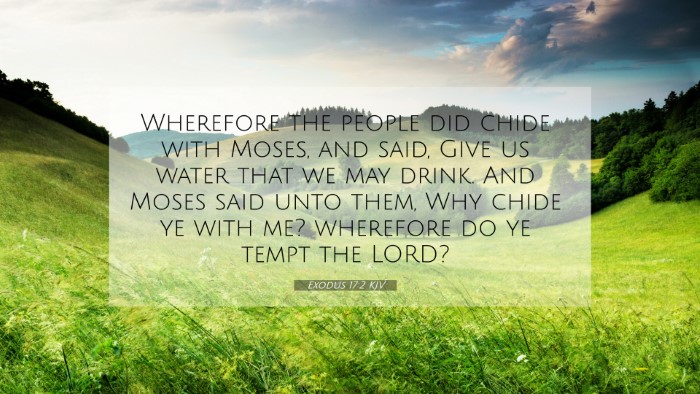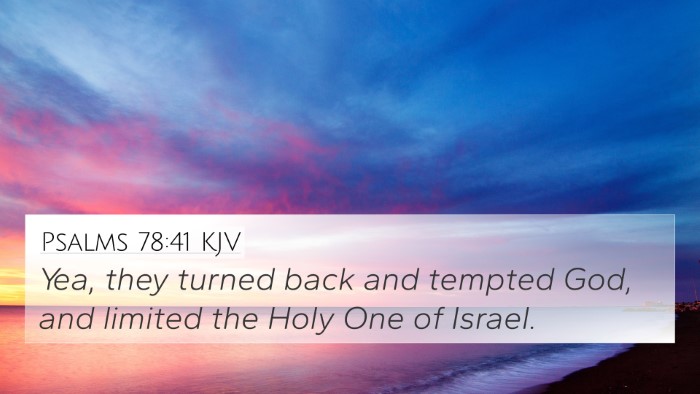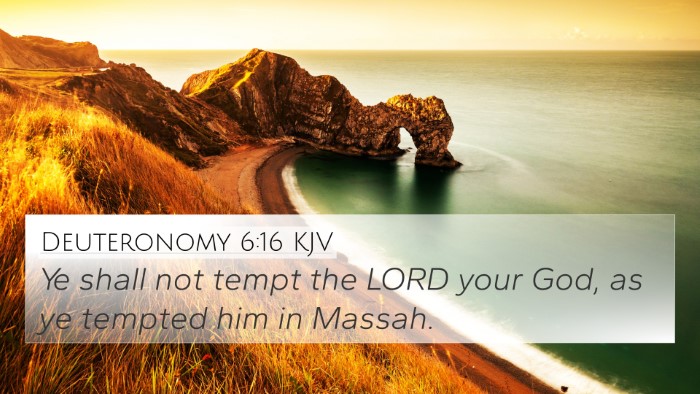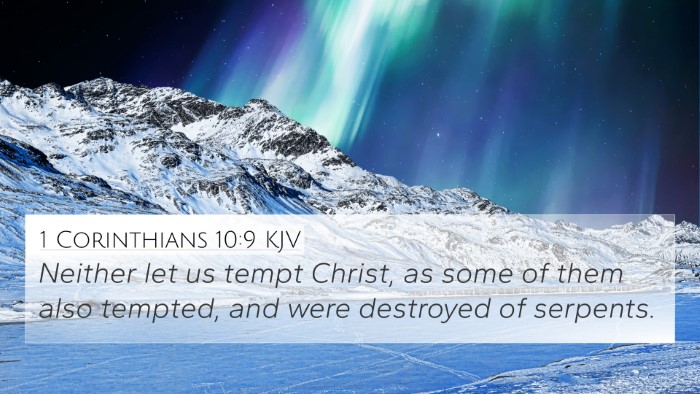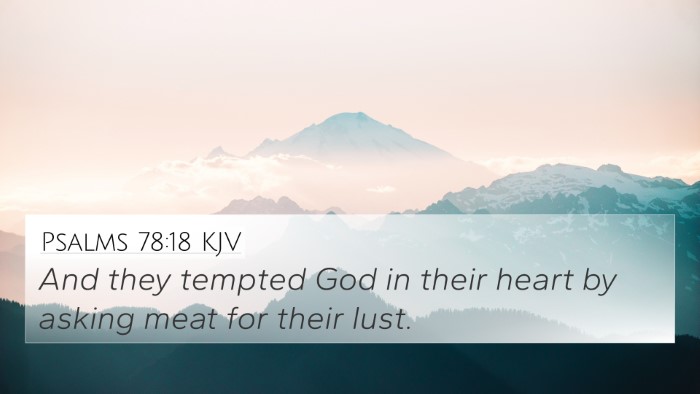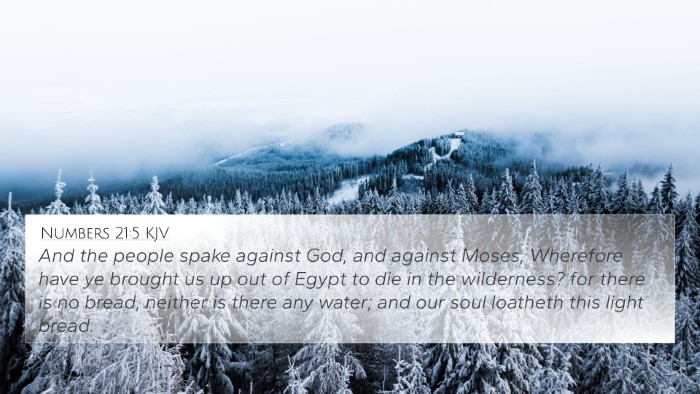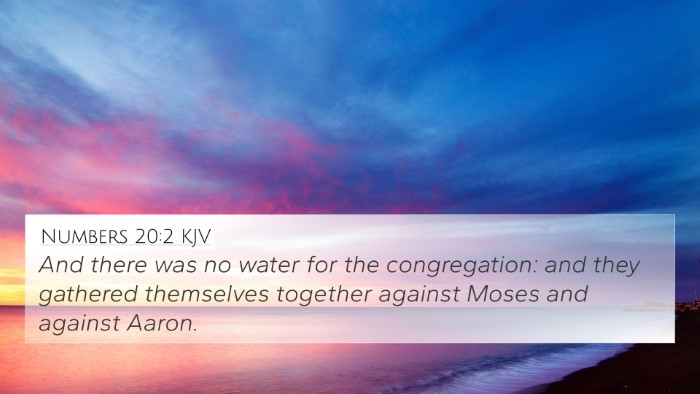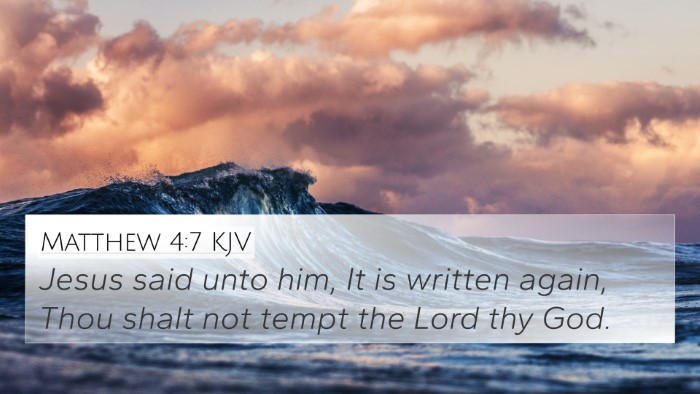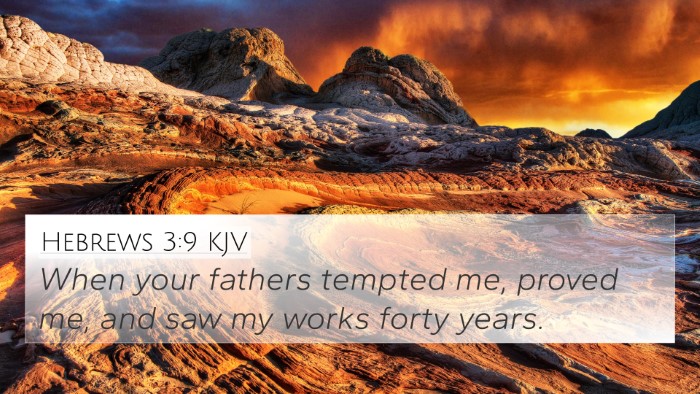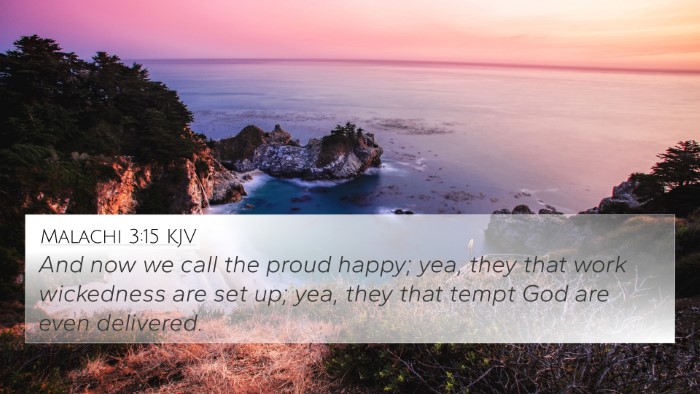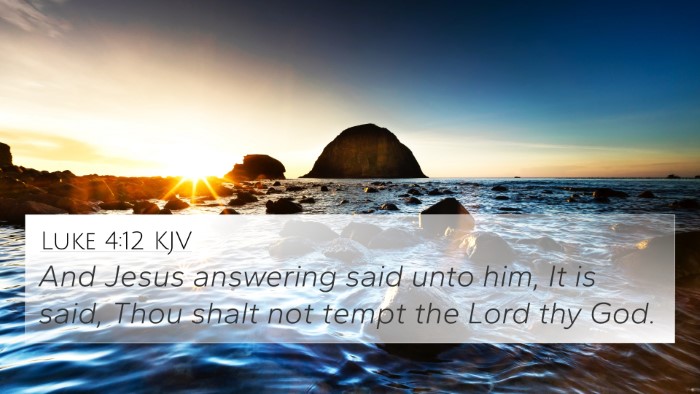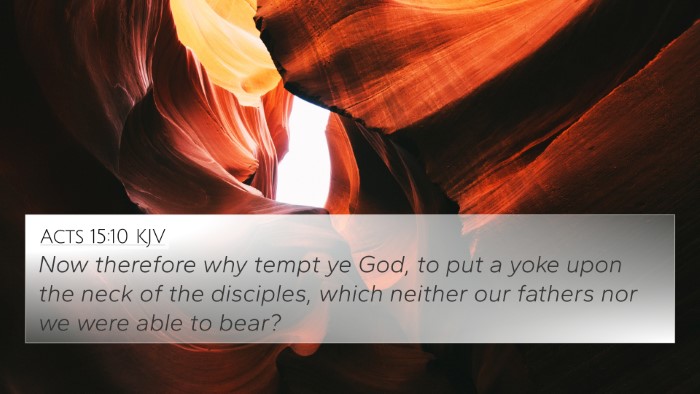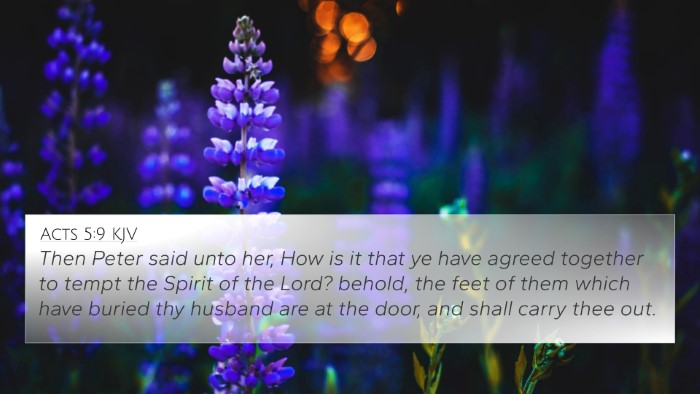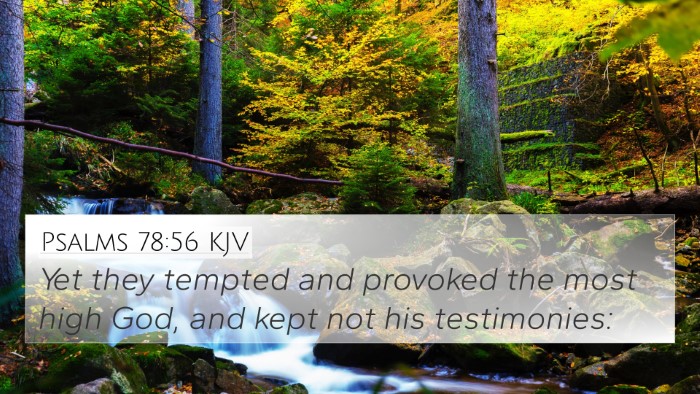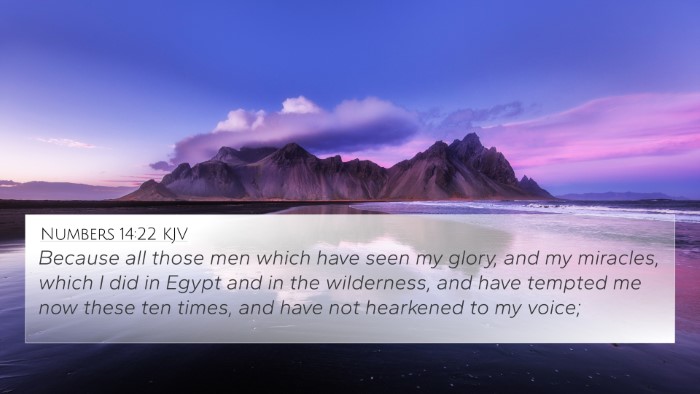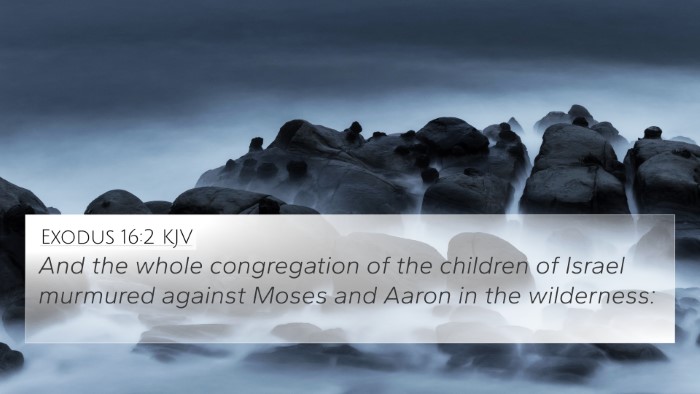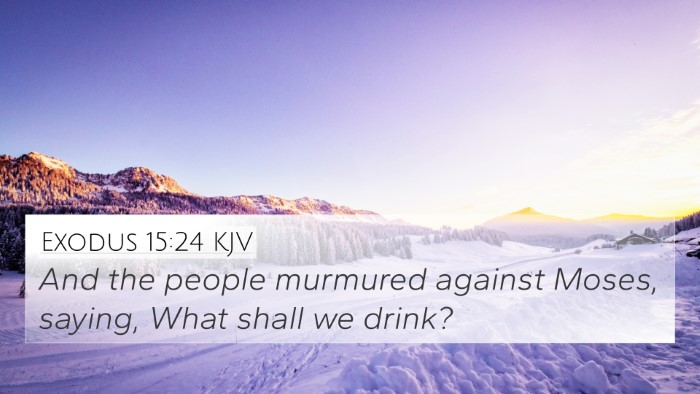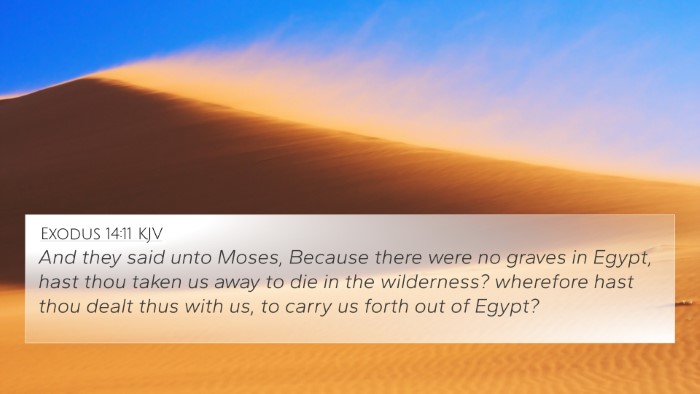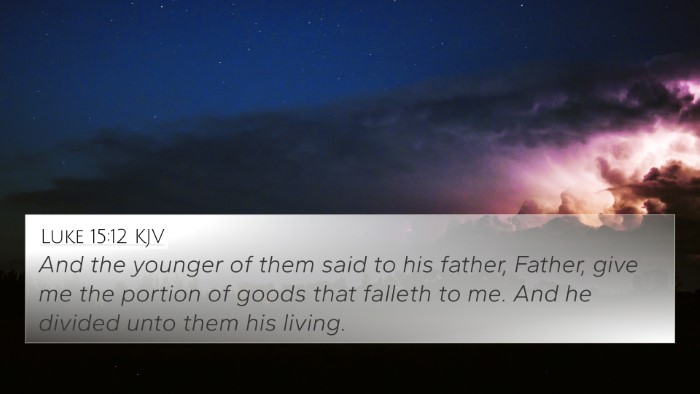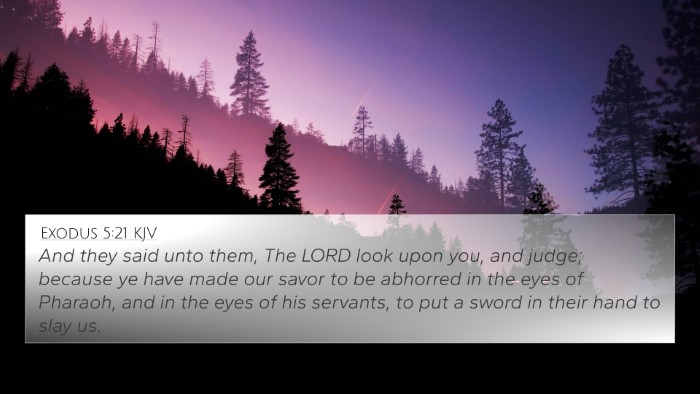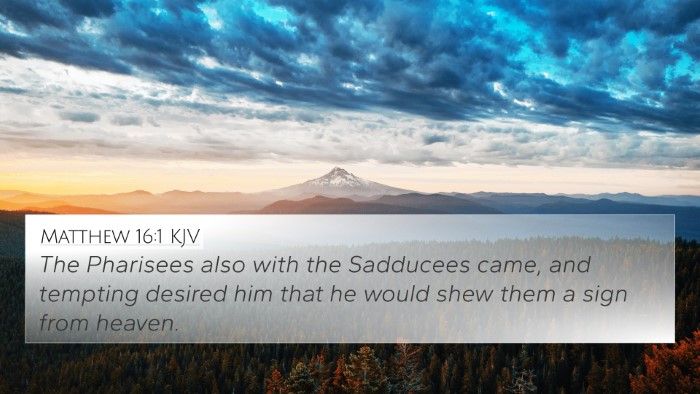Understanding Exodus 17:2
Exodus 17:2 states: "Therefore the people contended with Moses, and said, 'Give us water that we may drink.' And Moses said to them, 'Why do you contend with me? Why do you tempt the LORD?'" This verse occurs during Israel's journey through the wilderness, where their lack of water leads to a confrontation with Moses. By exploring this passage, we can uncover insights from various public domain commentaries, including those by Matthew Henry, Albert Barnes, and Adam Clarke.
Context and Analysis
In this chapter, the Israelites find themselves in Rephidim, where there is no water to drink. The complaint and challenge they pose to Moses reveal a deeper struggle with trust in God.
Matthew Henry's Commentary
According to Matthew Henry, the people's demand for water arises from their forgetfulness of God’s previous provisions during their journey. Their contention with Moses symbolizes their larger contention with God. Henry elaborates that this reflects a common theme throughout Israel's history—forgetting God's faithfulness in times of need. Their question, "Give us water," showcases a lack of faith, demonstrating how adversity can lead to spiritual doubt.
Albert Barnes' Commentary
Albert Barnes emphasizes the significance of Moses’ response to the people’s complaint. He highlights that Moses does not directly address their demands but instead asks, "Why do you tempt the LORD?" This indicates a recognition of the spiritual implications of their actions. Barnes points out that the real issue at stake is the testing of God’s willingness to provide, and that dissatisfaction amidst hardship reflects a broader theological question about reliance on divine provisions.
Adam Clarke's Commentary
Adam Clarke notes the seriousness of the people's contention, linking it to the broader narrative of Israel's testing in the wilderness. Clarke suggests that their behavior is indicative of a rebellion against leadership as well as against God. He points out that the term 'contended' signifies strife and highlights the tension within the community, which can often arise in times of scarcity and struggle.
Thematic Connections and Bible Verse Cross-References
The contentions in Exodus 17:2 connect to several other passages where the people of Israel face trials and demonstrate a lack of faith. Several key cross-references are worth noting:
- Numbers 20:2-5: The Israelites again contend for water.
- Deuteronomy 6:16: "You shall not tempt the LORD your God." A call to remember God's past faithfulness.
- Psalm 95:8-9: A warning against hardening hearts as the Israelites did in the wilderness.
- 1 Corinthians 10:9: A New Testament reminder of Israel testing Christ in the wilderness.
- Hebrews 3:8: Encouragement to remain open and trusting instead of tempting God as Israel did.
- Exodus 15:24: The people previously grumbled against Moses for bitter water.
- Exodus 16:2-3: Another account of Israel's complaints about food, showing a pattern of mistrust.
- John 4:10: Jesus speaks about living water, contrasting with the physical thirst of Israel.
- Philippians 4:19: Assurance that God will supply all needs, relevant to Israel's lack of faith.
- Romans 15:4: Encouragement to learn from the Scriptures about patience and hope in God.
Key Themes and Interpretations
This passage raises crucial themes of contention, faith, and divine provision. It invites us to consider the ways in which our own experiences of lack can lead to spiritual crises. As seen in the commentaries, understanding this verse requires linking it to the broader narrative of God's faithfulness and Israel's recurring challenges with trust.
Application and Reflection
For modern readers, Exodus 17:2 serves as a reminder of the significance of trust in difficult circumstances. Understanding the historical context and thematic connections can lead to deeper insights into our lives and challenges. It encourages believers to not only seek physical provisions but to depend on God’s promises and character.
Conclusion
In summary, Exodus 17:2 exemplifies the spiritual struggle of Israel amidst physical needs, intricately linking to themes of trust and divine provision found throughout the Bible. It beckons readers to dig deeper into the text, utilizing tools for cross-referencing and promoting a richer understanding of Scripture.
